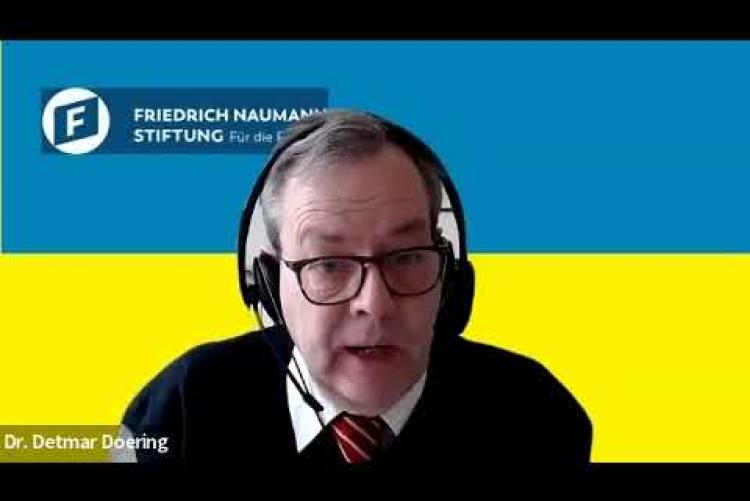
The Future of Democracy: Strengthening Liberal Values, Institutions and Procedures at Global, European, Regional and National Levels
– online conference of the Hungarian Europe Society –
Date: 17 March 2022, Thursday
CONFERENCE RECORDINGS
The Hungarian Europe Society has previously organised webinars and conferences about major social and political problems which have recently emerged in our new, uncertain times. Most significantly, liberal democracy has been under attack worldwide in national and regional public arenas as well as through the increasing international geopolitical race between the democratic Western world and strengthening (semi)-authoritarian regimes. The beginning of the twenties of the 21st century has brought up new risks and threats to the surface: environmental emergency, an unknown pandemic, migration, growing economic inequalities, the contradictions of a post-truth era, ideological/cultural as well as social/geographic polarisation and fragmentation, extreme right-wing identity politics, and soon.
We have two particular focuses which comprehensively incorporate the above mentioned themes. First, the Conference on the Future of Europe that was launched in May 2021 works with an open agenda and its settings let participants discuss all kinds of policy issues as well as legal and institutional renovations. Second, the Summit for Democracy, invented by the Biden administration, goes beyond transatlantic relations regarding its more ambitious, global scope in order to bring together democratic states for action worldwide. Both big exercises give civil groups, think tanks and citizens the chance to interfere and influence conceptual considerations and practical outputs before the end of the deliberations.
Program:
10.00 – 10.15 Participants Connect to Online Platform
10.15 – 10.30 Welcome Address
István Hegedűs, Chairman, Hungarian Europe Society, Budapest
Detmar Doering, Head of Prague Office of the Friedrich Naumann Foundation for Freedom, Prague
10.30 – 12.30 Morning session: The European Union: Fast Forward or a New Sclerosis?
Moderator: István Hegedűs, Chairman, Hungarian Europe Society, Budapest
10.30 – 11.00 Jacques Rupnik, Research Professor at CERI-Sciences Po in Paris and Visiting Professor at the College of Europe in Bruges: Do We Have an East-West Divide inside the European Union? From the Perspectives of the Ongoing Debates about the Future of Europe and the Forthcoming French Presidential Elections
11.00 – 11.30 Linn Selle, Chairperson of the European Movement Germany, Berlin: New German Perceptions on the Future of the European Union
11.30 – 12.00 Wojciech Przybylski, Editor-in-chief, Visegrad Insight, Warsaw: Alternative Ideas on the Reform of the European Union from Central Europe
12.00 – 12.30 Richard Youngs, Senior Fellow in the Democracy, Conflict, and Governance Program, based at Carnegie Europe, Brussels: The Conference on the Future of the European Union: A Fresh Exercise for Democratic Participation and Citizens’ Inclusion?
12.30 – 14.00 Break
14.00 – 16.00 Early Afternoon Session: A New Era for the Global Co-operation of Democracies?
Moderator: István Hegedűs, Chairman, Hungarian Europe Society, Budapest
14.00 – 14.30 Jonathan Katz, Senior Fellow and Director of Democracy Initiatives, The German Marshall Fund of the United States; former Deputy Assistant Administrator, Europe and Eurasia Bureau, US Agency for International Development, Washington DC: The Summit for Democracy: Objectives, Progress and Problems
14.30 – 15.00 Jamie Shea, Senior Adviser on Security and Defence Policy, European Policy Centre; former Deputy Assistant Secretary-General for Emerging Security Challenges, NATO, Brussels: Security and Geopolitical Considerations for our Decade
15.00 – 15.30 Maria Domańska, Senior Fellow, Centre for Eastern Studies, Warsaw: How and Why Russia Challenges and Undermines Liberal World Order and What can the West Do against the Threat?
15.30 – 16.00 Imants Lieģis, Senior Fellow, Latvian Institute for International Affairs, Former Ambassador, Former Minister of Defense, Riga: Dealing with Assaults on Democracy within the Dynamics of Relations between the EU, USA, Russia and China
16.00 – 18.00 Late Afternoon Session: Will Populists Take Over Worldwide?
Moderator: Erik Uszkiewicz, Vice-chairperson, Hungarian Europe Society, Budapest
16.00 – 16.30 Erin Jenne, Professor at the International Relations Department at the Central European University, Budapest-Vienna: Mapping Populism and Nationalism in Leader Rhetoric across North America and Europe
16.30 – 17.00 Ruth Wodak, Emeritus Distinguished Professor and Chair in Discourse Studies, Lancaster University/University Vienna: Liberal and Populist Media Discourses and the Transformation of Media Systems
17.00 – 17.30 Helena Rosenblatt, Distinguished Professor of History, Political Science and French, The Graduate Center, City University of New York: Right- and Left-Wing Illiberalism
17.30 – 18.00 István Hegedűs, Chairman, Hungarian Europe Society, Budapest: The Significance of the Hungarian Parliamentary Elections on 3 April 2022
18.00 – 18.15 Closing Remarks
Erik Uszkiewicz, Vice-chairperson, Hungarian Europe Society, Budapest
“The Future of Democracy: Strengthening Liberal Values, Institutions and Procedures at Global, European, Regional and National Levels” project is supported by the Friedrich Naumann Foundation for Freedom.
This event is being video recorded for archival, educational, and related promotional purposes. By attending or participating in this event, you are giving your consent to the video recording.
Please note that the language of the event is English and no translation will be provided.